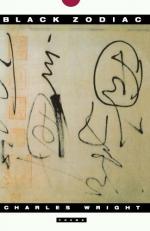|
This section contains 326 words (approx. 2 pages at 300 words per page) |

|
Wright's epigraph for [China Trace], taken from T'u Lung, of the Ming dynasty, provides a key:
I would like to house my spirit within my body, to nourish my virtue by mildness, and to travel in ether by becoming a void. But I cannot do it yet…. And so, being unable to find peace within myself, I made use of the external surroundings to calm my spirit, and being unable to find delight within my heart, I borrowed a landscape to please it.
In the context of an Idealistic Neo-Confucianism, Wright's world becomes one of presences that are inadequate substitutes for the absence he desires. As a result, the objects of his landscape aspire to the condition of language, our substitute, if we can trust our linguistic critics … for what we cannot fully possess, for what is missing. In a roundabout way, he hopes language will bring him...
|
This section contains 326 words (approx. 2 pages at 300 words per page) |

|


